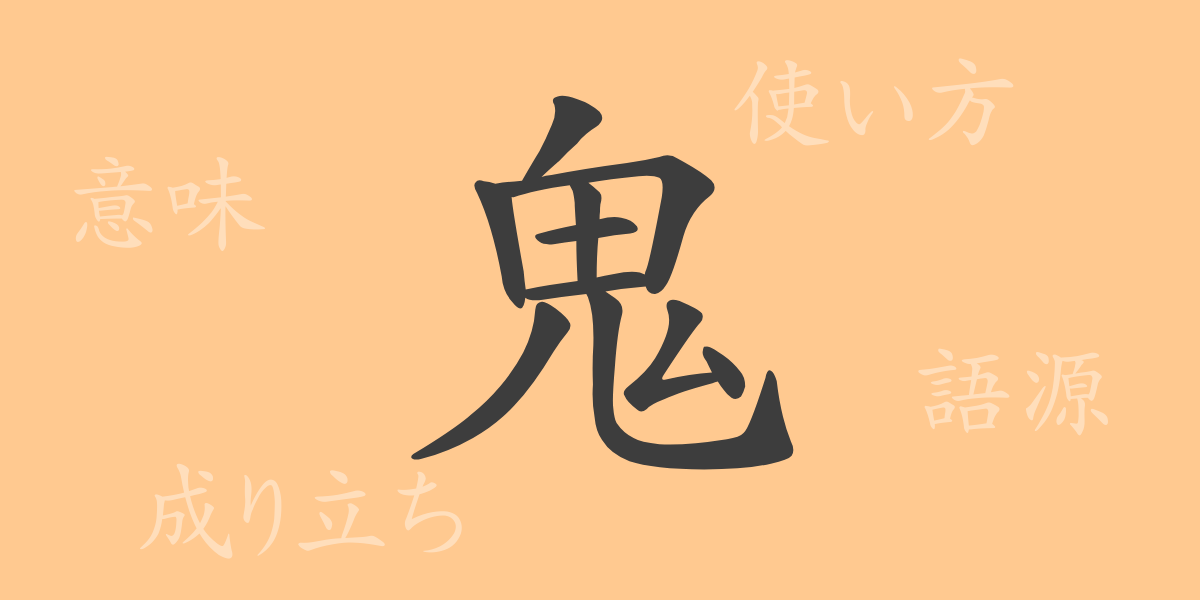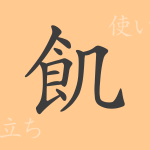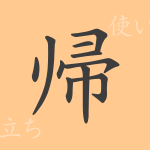The enigmatic presence of ‘Oni’ (おに), lurking in the depths of Japanese culture, has stirred the imaginations of people since ancient times, appearing in various stories and legends. This article delves into the mysteries of the commonly used kanji ‘Oni’ (鬼), exploring its origins, meaning and usage in modern times, and its allure through idioms and proverbs.
The Origins of ‘Oni’ (鬼)
The character for ‘Oni’ (鬼) can be traced back to the ancient Chinese script known as ‘oracle bone script’. Its shape resembles a human-like figure with horns, indicating a being with extraordinary power, different from humans. Ancient Chinese literature suggests that ‘Oni’ (鬼) represented malevolent spirits or the souls of the deceased, and at times were recognized as messengers of the gods. The concept was introduced to Japan along with the kanji, where it evolved uniquely, intertwining with Japanese culture and religious beliefs.
Meaning and Usage of ‘Oni’
In modern Japanese, ‘Oni’ (鬼) primarily refers to supernatural beings that appear in legends or folklore, such as demons or evil spirits. The term is also frequently used in adjective phrases like ‘like an Oni’, indicating something extremely strict, terrifying, or someone with superhuman abilities. For example, expressions such as ‘Oni instructor’ or ‘Oni boss’ are commonly used.
Readings, Stroke Count, and Radical of ‘Oni’ (鬼)
The kanji ‘Oni’ (鬼) has multiple readings in Japanese.
- Readings: The onyomi (音読み) is ‘Ki’, and the kunyomi (訓読み) is ‘Oni’ (おに).
- Stroke Count: A total of 10 strokes.
- Radical: The ‘Oni’ radical (鬼部 – ‘kihen’).
Idioms, Phrases, and Proverbs Using ‘Oni’ and Their Meanings
There are numerous idioms, phrases, and proverbs in Japanese that include ‘Oni’ (鬼). Here are a few examples:
- Oni ga deru ka hebi ga deru ka (鬼が出るか蛇が出るか): Describes a situation where the outcome is unpredictable.
- Oni no me ni mo namida (鬼の目にも涙): Even the most ruthless person can show a compassionate tear.
- Oni ni kanabo (鬼に金棒): When a strong entity gains even more power.
- Oni no inu ma ni sentaku (鬼の居ぬ間に洗濯): Taking the opportunity to do something while the person you fear is away.
Conclusion on ‘Oni’
The kanji ‘Oni’ (鬼), with its historical background and contemporary usage, holds a wide spectrum of cultural significance in Japan. From folkloric monsters to modern metaphorical expressions, the impact of this single character is immeasurable. Within Japanese life, ‘Oni’ is both a feared entity and a familiar character, thus reflecting the multifaceted nature of Japanese culture.

























